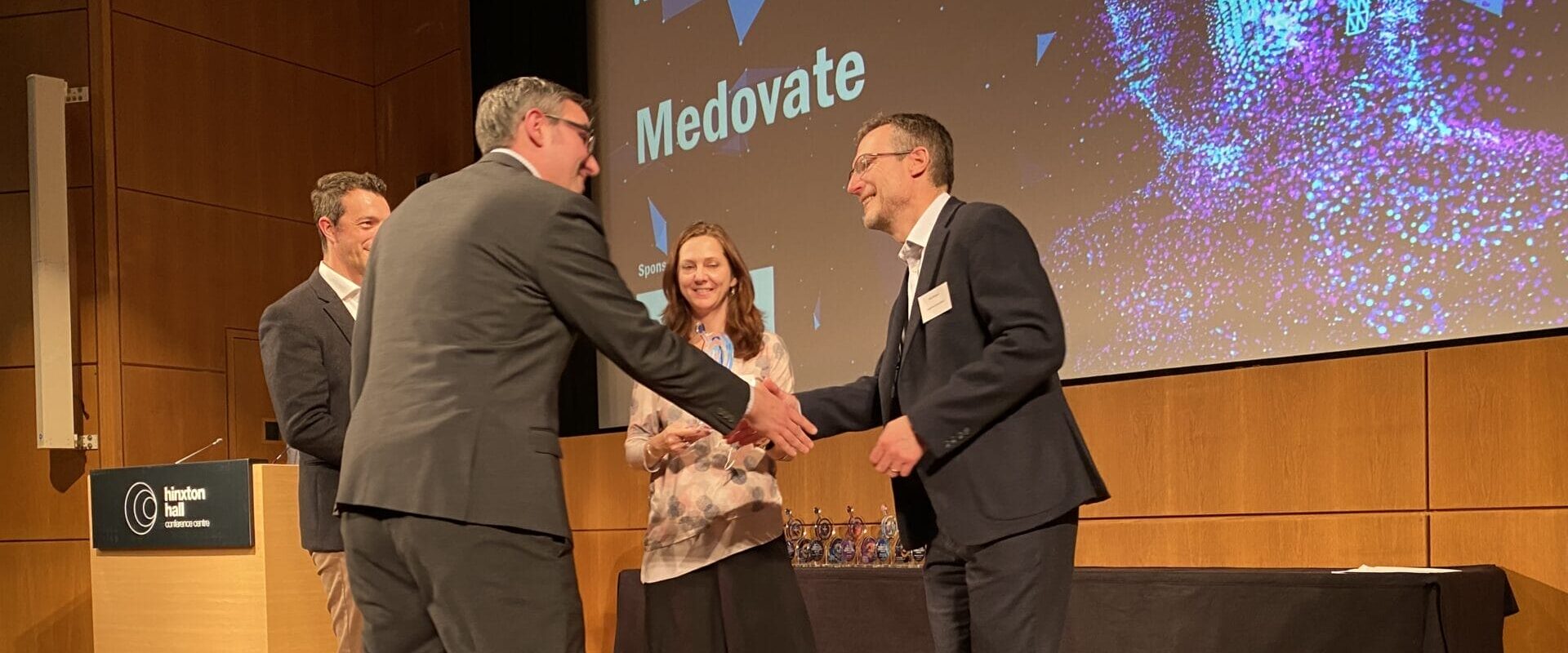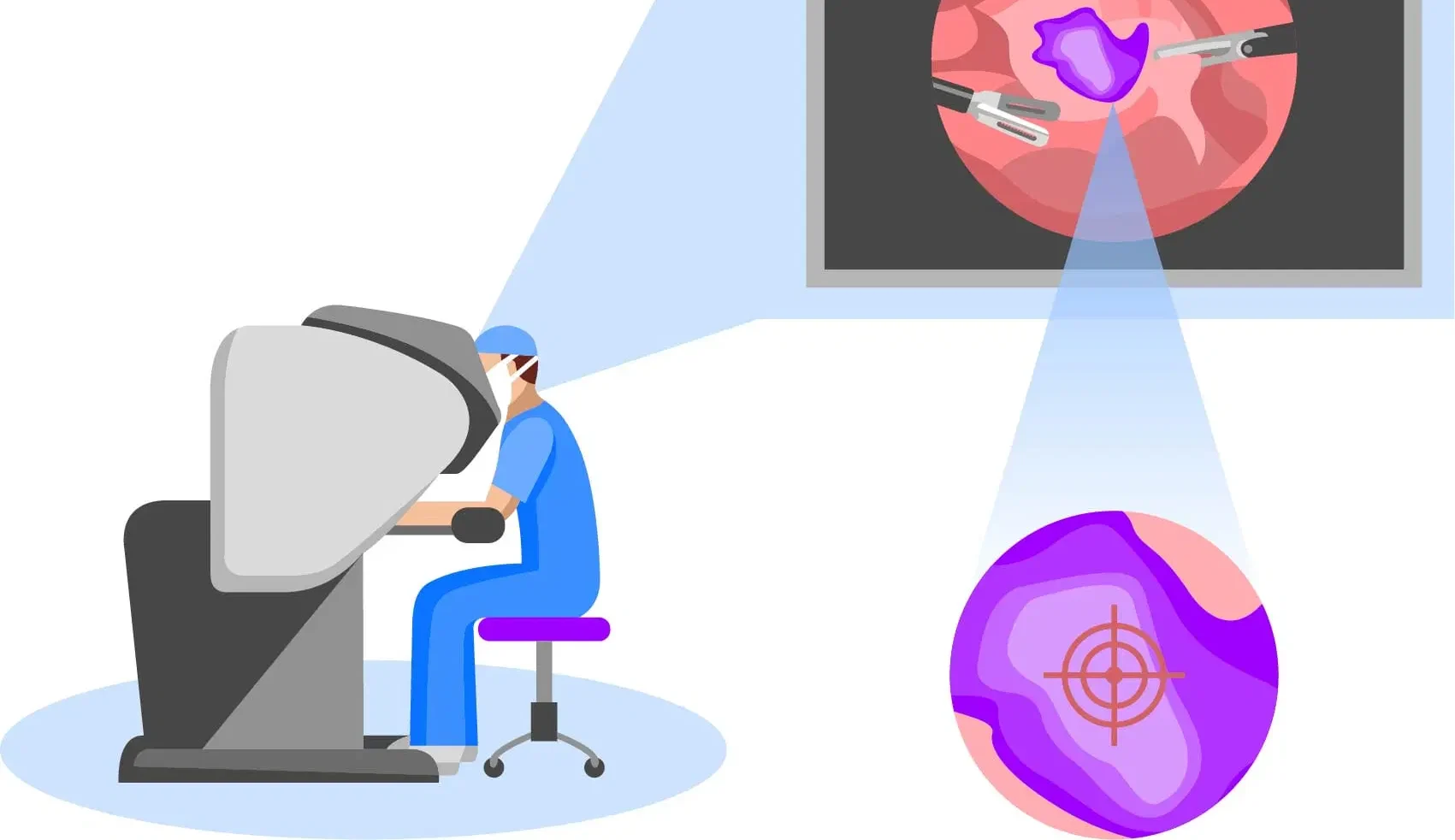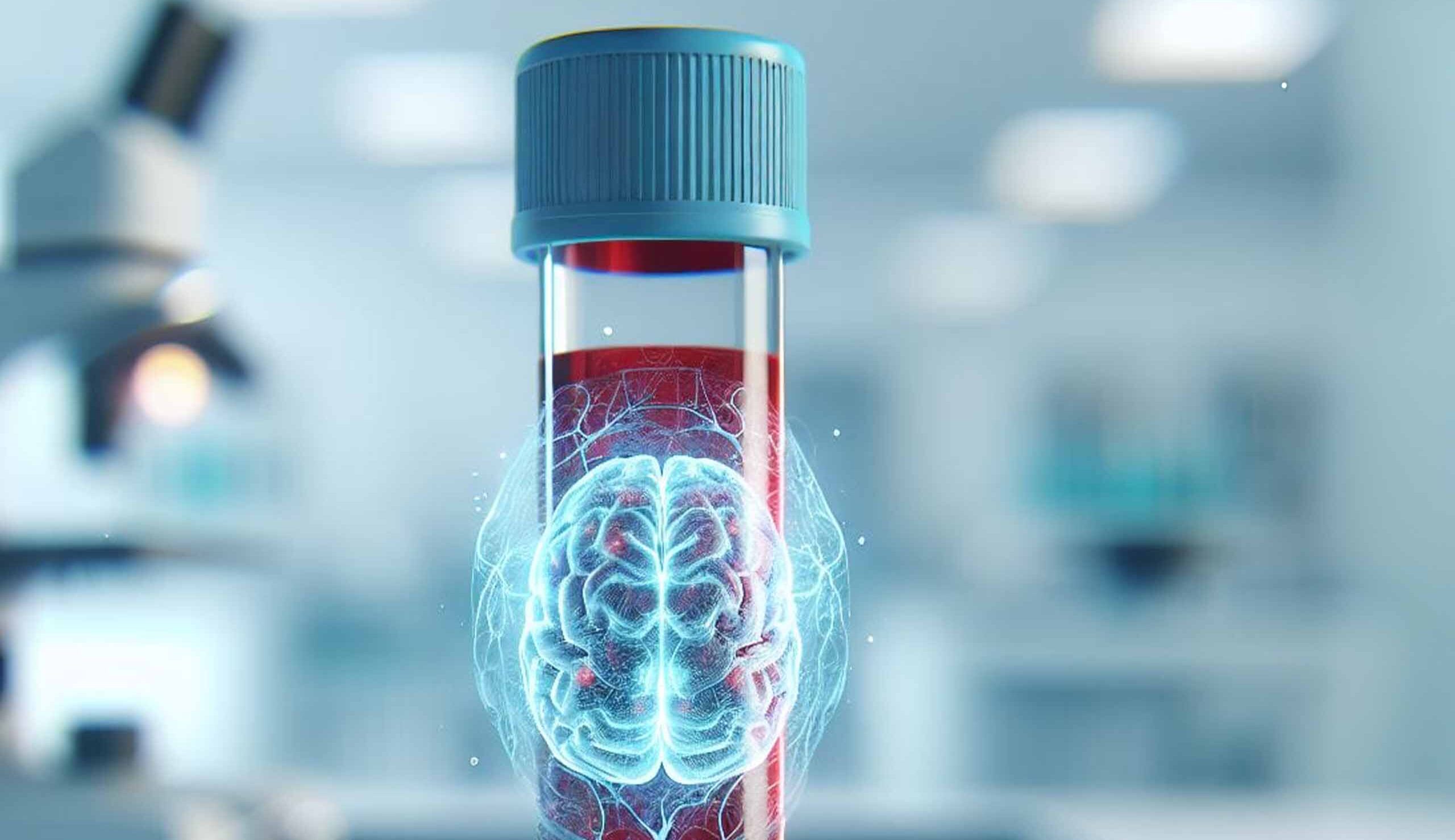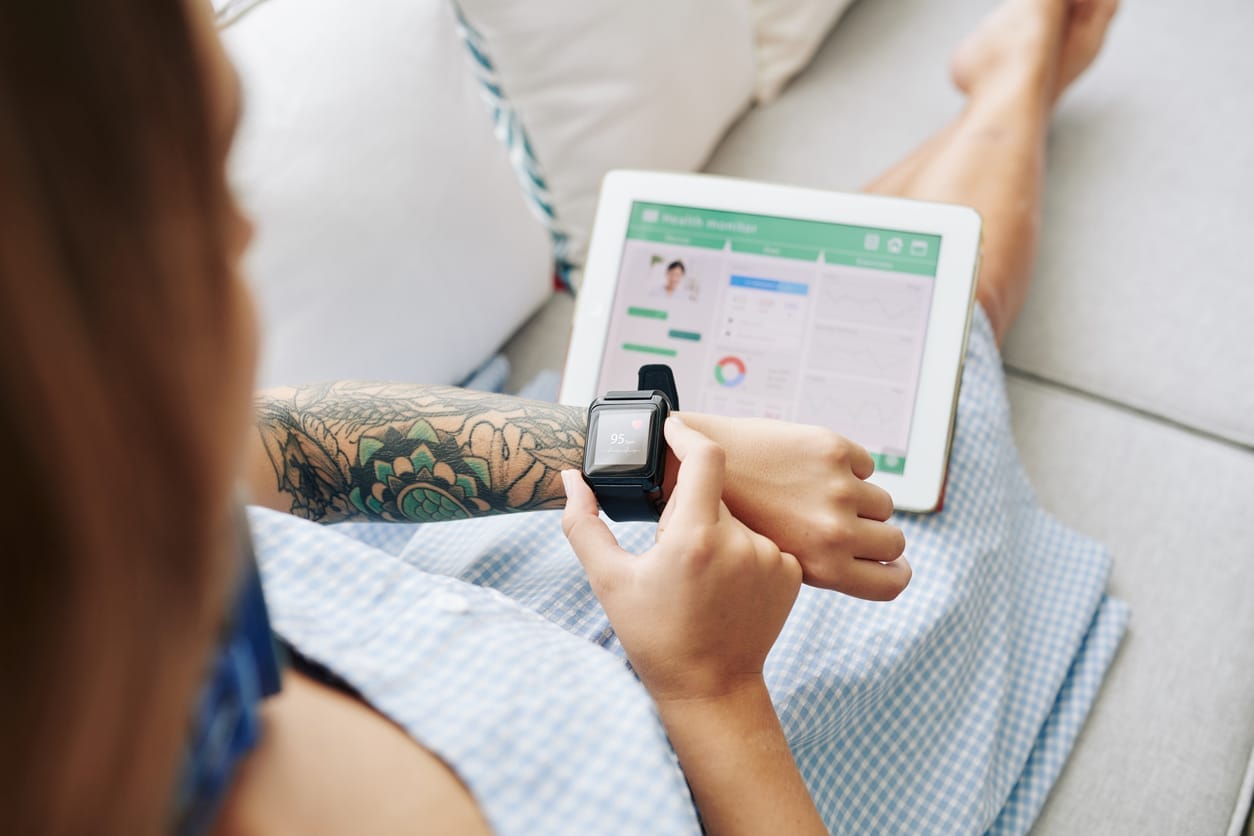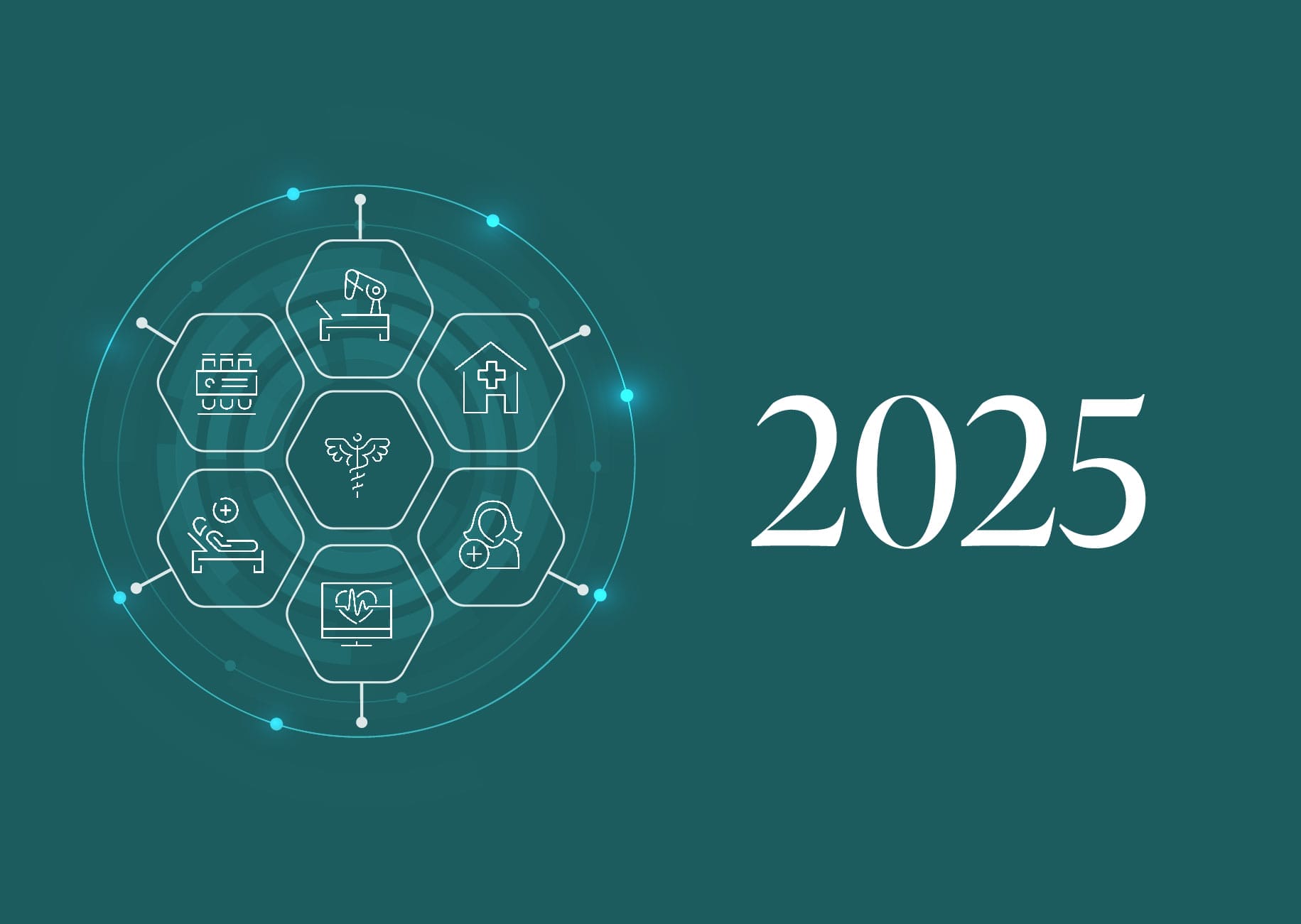Sagentia Medical’s Rob Morgan and Paulo Pinheiro helped judge the Cambridge Independent Science and Technology Awards this year. They say the shortlist for MedTech Company of the Year provides an interesting snapshot of the current innovation landscape. Here they look at some of the post-pandemic trends reflected in the entries.
Our involvement with the Cambridge Independent Science and Technology Awards has become an annual highlight for the Sagentia Medical team. This year we sponsored MedTech Company of the Year. Rob Morgan (Partner) and Paulo Pinheiro (Head of Software) were part of the judging panel for this category as well as Life Science Company of the Year and Biotech Company of the Year.
Cambridge is a medtech innovation hotspot
As always, the entrants were impressive, reflecting the quality and diversity of innovation in the Cambridge area. Rob and Paulo also noted a distinct post-pandemic influence on the concepts presented by the contenders for Medtech Company of the Year. Several of the solutions put forward empower patients to diagnose, monitor and manage health conditions without needing to visit a clinic or hospital. One uses AI to aid triaging and tackle waiting lists more intelligently. Another involves an alternative business model to develop and commercialise ideas from medical professionals.
These Cambridge-based innovators reflect the current needs and priorities of healthcare in the UK and other parts of the world. Since awards often act as a barometer for the wider industry, it’s likely that the medtech trends witnessed here are being replicated at a global scale.
‘Judging the awards was really interesting, but it wasn’t easy. Some of the companies have already launched products whereas others are still at the funding stage, so it’s hard to compare them from a commercial perspective. Nevertheless, based on innovation alone, the calibre was very high. It will be fascinating to see how these impressive MedTech concepts progress and how the pandemic influences the sector over the long term.’
Rob Morgan, Partner, Sagentia Medical
Lifetime Achievement award goes to Professor of breakthrough genomics research
The notable Lifetime Achievement award was given to Cambridge based Professor Sir Mike Stratton, Director of the Wellcome Sanger Institute and CEO of the Wellcome Genome Campus. His inspirational opening address told the story of epiphany and discovery moments that helped him, and his team, identify the BRCA2 gene that lies behind many cases of breast cancer. The Cancer Genome Project he set up systematically searched through the whole human genome for mutations involved in cancer, ultimately to enable science to improve diagnosis, treatment, and prevention of the disease. He continues to identify causes of cancer from genetic fingerprints.
Dr. Simon Forbes, our Head of Genomics & Bioinformatics, worked with Prof. Stratton for almost 20 years at the Wellcome Sanger Institute, said ‘Mike is an exciting and innovative character, ensuring the Sanger’s world-leading science supports what today’s medical industry needs. It was hugely exciting to work with him to spearheaded commercial engagement of data from his Cancer Genome Project, where we helped grow a very ingenious range of new medical R&D in both large pharma and global SME’s’.
Home-based healthcare diagnostics and management
Two of the shortlisted companies’ products improve quality of life for people with serious illnesses such as cancer, kidney disease and heart disease. They also reduce unnecessary hospital visits, resulting in cost savings for the NHS.
52 North Health: NeutroCheck
This start-up, based at ideaSpace West in Cambridge, aims to create affordable, cutting-edge technology that brings healthcare closer to patients. It was recently awarded $1.4million in funding to accelerate the development of NeutroCheck, a device to improve care of chemotherapy patients.
People undergoing chemotherapy are at increased risk of Neutropenic Sepsis (NS), a whole-body reaction to infection. NS is life-threatening, and results in thousands of premature deaths each year. So, any chemotherapy patient with a high temperature, indicating that they have an infection, would traditionally be directed to emergency care and given strong precautionary antibiotics. However, around 50 percent of the time they don’t have NS meaning they experience unnecessary stress and upheaval as well as taking unnecessary medication.
NeutroCheck offers a fast and reliable way to diagnose NS at home. Patients who test positive benefit from rapid management of the condition. Meanwhile those who test negative gain peace of mind and don’t have to attend hospital or take antibiotics.
The technology is the brainchild of 52 North Health’s CEO Umaima Ahmad. She told Cambridge Independent that it has further potential beyond NS diagnosis: ‘the platform technology can be applied to other unmet medical needs, including other forms of sepsis, but also within the pharmaceutical industry for treatment monitoring of patients on immunosuppressive drugs.’[1]
Find out more about NeutroCheck.
Kalium Health: digital electrolyte monitoring technology
Kalium Health is another medtech start-up taking on big healthcare challenges. Established in 2018, its goal is to transform the management of cardiorenal diseases with real-time blood electrolyte data.
Kidney disease and cardiovascular medication can interfere with the balance of electrolytes such as sodium, potassium, magnesium and calcium, which results in serious health issues and can be fatal. Maintaining blood potassium concentration is especially important, as disturbances may cause life-threatening arrhythmias.
At present, electrolyte levels can only be measured via a blood test conducted at hospital or in a clinic. What’s more, patients often have to take precautions, such as following a low-potassium diet, without knowing whether it is really necessary.
Kalium’s technology enables electrolyte levels to be measured via a simple finger-prick test like that routinely used by people with diabetes. It has the potential to allow kidney and heart disease patients to personally monitor their electrolyte levels, reducing the need for in-clinic consultations. In December 2021, the company announced that it was beginning a clinical evaluation of its technology with kidney disease patients.
Products under development include:
- A simple, handheld monitor that offers clinical-grade blood electrolyte testing using a single drop of blood.
- A smart app that puts patients in control of everyday health, with AI-powered insights to help with controlled diets and medication.
- A digital health platform that integrates with electronic medical records, giving healthcare professionals real-time access to patient data.
Find out more about Kalium Health.
‘The pandemic heightened the need for, and acceptance of, at-home diagnostic testing. With healthcare providers facing unprecedented challenges right now, empowering patients to monitor their own health can ease some of the pressure. This creates a fertile environment for the development and uptake of patient-managed diagnostic technologies.’
Paulo Pinheiro, Head of Software, Sagentia Innovation
